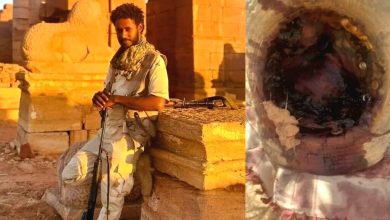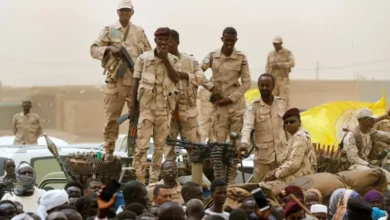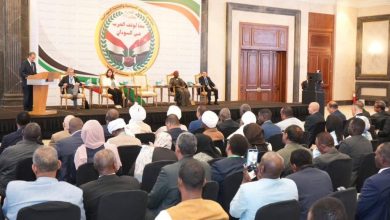Sudan War: Will the Ethiopian Prime Minister’s Effort Successfully Plant the Seed of Goodwill Between the Two Countries?

Al-Qadarif – almohagig– Talal Ismail
Regional and international initiatives are underway to resolve the Sudanese crisis, highlighted by brief visits from Ethiopian Prime Minister Abiy Ahmed and Saudi Deputy Foreign Minister Waleed Al-Khuraiji to Port Sudan yesterday and today, where they met with Chairman of the Sovereignty Council, Abdel Fattah al-Burhan.These visits have drawn attention to the repercussions of the war that erupted in mid-April last year.
Al-Burhan and his guest Abiy Ahmed planted a palm tree at the Guest Palace in Port Sudan following a meeting in which they discussed the strong bilateral ties between Sudan and Ethiopia, according to a press release from the Transitional Sovereignty Council’s media office. Al-Burhan stated that the visit of the Ethiopian Prime Minister signifies the deep relations between the two peoples, emphasising that it reflects the sincerity of Ethiopian leadership and its good intentions toward Sudan, reaffirming the strength of the relations and the importance of maintaining them.
Al-Burhan briefed the Ethiopian Prime Minister on the situation in Sudan, highlighting the rebellion led by the Rapid Support Forces (RSF) militia against the state and its institutions. He pointed out that the militia has committed crimes and atrocities against the Sudanese people and destroyed the country’s infrastructure, targeting national institutions.
The Chairman of the Sovereignty Council emphasised Sudan’s eagerness to develop areas of cooperation with Ethiopia to serve the mutual interests of the two nations.
Ethiopian Prime Minister Abiy Ahmed expressed his gratitude to the Chairman of the Sovereignty Council, Abdel Fattah al-Burhan, for the warm hospitality and reception. He emphasised that his visit to Sudan was a gesture of solidarity with the Sudanese people, stating that true friends show their support in times of hardship. Abiy Ahmed reiterated that Ethiopia’s government and people stand with Sudan, and his visit serves as a message of solidarity during Sudan’s ordeal. He added, “This war will end, and the relations between the two countries will remain strong and firm.”
Highlighting the importance of peace as a foundation for development, he affirmed that countries’ problems should be resolved internally without external interference.
Saudi Efforts
Prior to the Ethiopian Prime Minister’s visit to Port Sudan, Saudi Deputy Foreign Minister Waleed Al-Khuraiji met with Chairman of the Sovereignty Council Abdel Fattah al-Burhan on Monday. Al-Khuraiji reiterated Saudi Arabia’s support for achieving a permanent ceasefire in Sudan and advancing the progress made in the “Jeddah 1” and “Jeddah 2” negotiations.
Al-Khuraiji emphasised, “The leadership of the Kingdom is keen on restoring security and stability in Sudan, which requires calm, wisdom, restraint, the resumption of negotiations, and showing flexibility and responsiveness to positive and humanitarian initiatives.”
Concerns and Agendas
These visits clearly reflect the international community’s concerns and agendas regarding the impact of the war in Sudan and the reshaping of the scene in the Horn of Africa amid the conflict of interests between the United States and its allies in the region on the one hand, and Russia and China with their interests in the African continent and the Red Sea coast through establishing military bases and influencing the orientations of neighbouring African governments to Sudan on the other hand.
Concerns of Escalation
There are fears that the impacts of the war in Sudan might lead to direct involvement from Ethiopia and Eritrea, escalating tensions in the Horn of Africa. Observers believe that this could potentially ignite the situation in the region.
Regional and International Efforts
The Ethiopian Prime Minister’s visit comes after efforts by Saudi Arabia, the African Union, and IGAD. The Jeddah platform was launched on May 6, 2023, less than a month after the war began, with negotiations coordinated by Saudi Arabia and the United States.
A meeting took place in Manama, Bahrain, between November 2023 and January 2024, under U.S. auspices, and was kept secret until the U.S. Department of State revealed it in February 2024.
The African Union and IGAD made six attempts, the first in May and the second on June 12, 2023, when IGAD member state leaders held an extraordinary summit in Djibouti. This was followed by an invitation from the African Quartet Committee for the Sudanese army and the Rapid Support Forces militia to meet in Addis Ababa on July 10, 2023. Still, the Sudanese army delegation boycotted the meeting in protest of Kenya’s chairmanship of the committee, which they viewed as biased towards the rebellion.
On December 9, 2023, IGAD held a second extraordinary summit in Djibouti. About a month later, the African Union formed a high-level mechanism chaired by Mohammed Ibn Chambas, the AU High Representative, with Symbiosis Wandira, former Vice President of Uganda, and Francisco Wandira, former AU Special Representative to Somalia.
This committee was tasked with working with all parties to restore peace in Sudan.
On January 20, 2024, IGAD held a third summit in Kampala, Uganda, and set a two-week deadline for a direct meeting between the army’s leaders and the Rapid Support Forces to end the war. However, Sudan announced the suspension of its membership in the organisation just hours after the summit concluded.
In Cairo, the second initiative was launched on July 6 under the slogan “Together to Stop the War,” after a presidential summit of Sudan’s neighbouring countries was arranged a year prior. This summit had formed a committee of foreign ministers to resolve the crisis, but the involvement of some of these countries in supporting the rebellion thwarted those efforts.
Two days ago, the recent Cairo consultative meeting was the most comprehensive and high-level, setting a benchmark for subsequent sessions.
Preparatory Dialogue in Addis Ababa
The political community is eagerly awaiting the results of the preparatory dialogue between Sudanese parties in Addis Ababa from July 10 to July 15, amidst internal disagreements among the leadership of the Sudanese Political and Civil Forces Coordination Committee “Taqaddum” led by Abdullah Hamdok. A committee from Taqaddum, including Sadiq Al-Sadiq Al-Mahdi, Ahmed Taqad Lasan, and Shihab Ibrahim, met with the African Union to submit the names of nominees for the meeting.
Sources indicated that the “Taqaddum” committee requested that 15 key figures from Sudanese political blocs, including Mohamed Said Ahmed (Al-Jakoumi), Mubarak Ardol, Jibril Ibrahim, Mini Arko Minawi, Nazer Mohamed Al-Amin Tirik, Al-Tom Hago, and Ali Askouri, be excluded from attending the Addis Ababa meeting.





